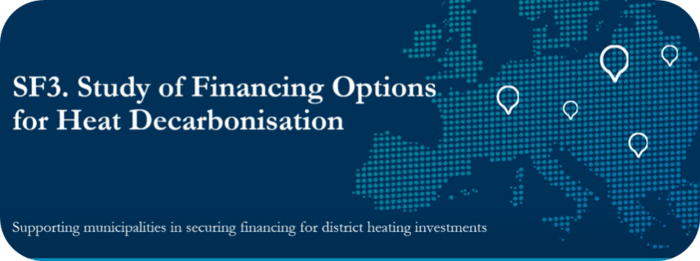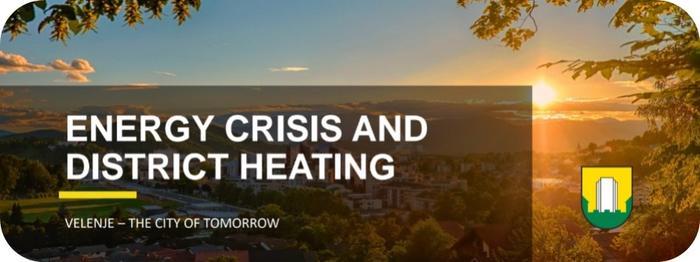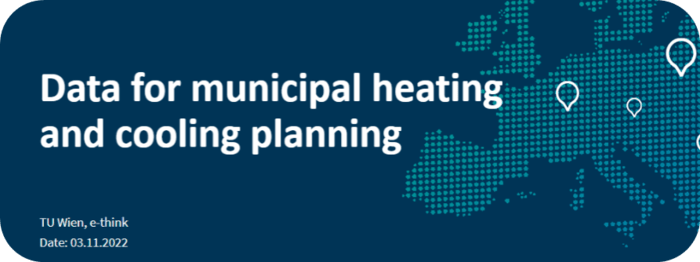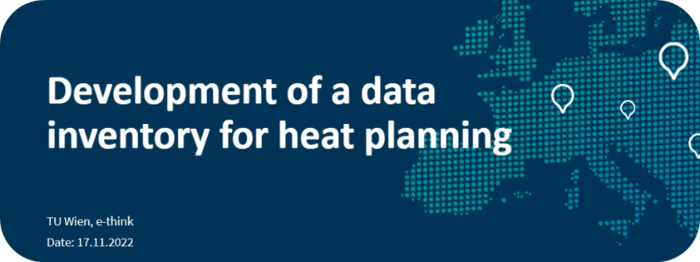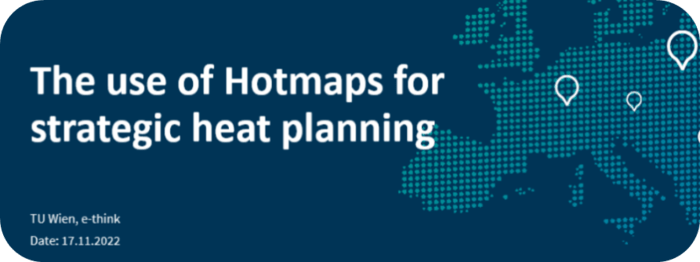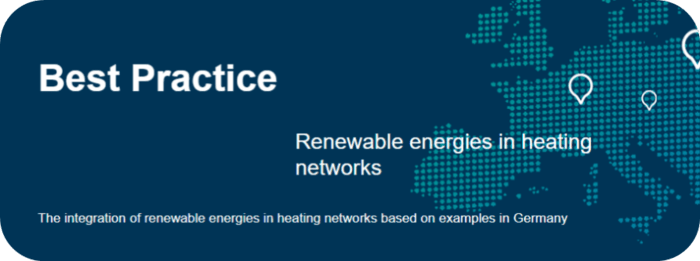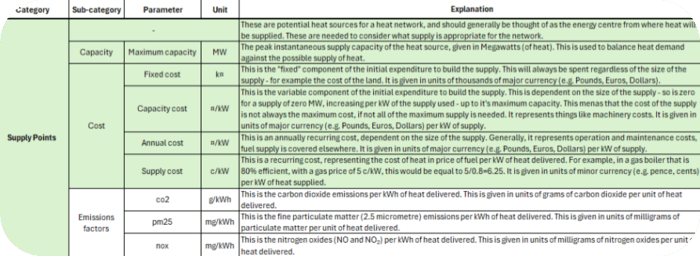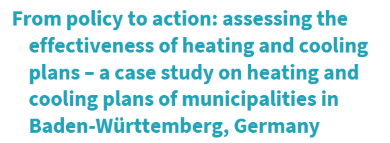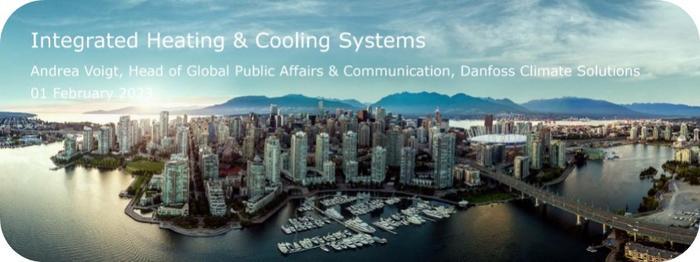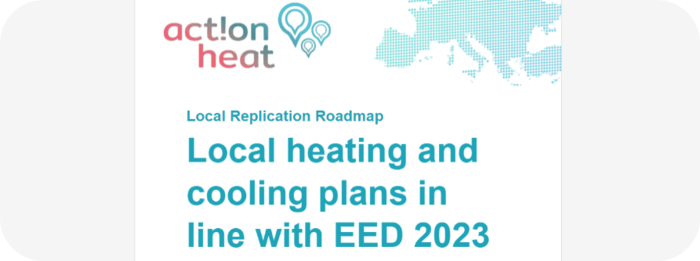2. Description of the H&C planning and financing process
2.1 Preparatory phase
Study of financing options for heat decarbonisation
This video presents a study on financing options for heat decarbonization, covering policy frameworks, district heating network modeling, funding sources at both national and European levels, and outlining the next steps for the project.
Set-up of strategic H&C planning in your city: Vision commitment and mobilisation
This presentation covers how cities can develop heating and cooling plans, including creating a vision and commitment, showcasing city examples, outlining mobilization strategies, and providing additional resources for implementation.
Establishing a thermal stakeholder group and engagement concept
This presentation details how to establish a thermal stakeholder group by emphasizing the importance of engaging the stakeholder community, identifying key stakeholders, developing an engagement strategy, and outlining the expected outcomes from stakeholder dialogue.
Developing Heating and Cooling Transition Strategy
This presentation outlines the process of developing a heating and cooling transition strategy, covering the strategic planning process, roadmap creation, drivers and barriers, policy measures, review and reporting, the application of Hotmaps for strategy development, and a case study example from San Sebastian.
Facing the Energy Emergency in Europe
The presentation addresses Europe's energy emergency, highlighting that heating and cooling account for half of energy consumption, with natural gas as the dominant source. It emphasizes the current crisis awareness, the growing importance of heating and cooling planning, the benefits of Act!on Heat for applicants, tools used in heating and cooling planning, and ongoing support facility case studies.
Energy Crisis and District Heating
This presentation discusses the energy crisis and district heating in Velenje, focusing on the city's new image, highway construction, job and housing creation, the transformation of the district heating system, the closure of the Velenje coal mine, the restructuring of the Savinja-Šalek region, and the energy efficiency of buildings in Velenje.
Data for municipal heating and cooling planning
This presentation covers the data needs for municipal heating and cooling planning, addressing policy challenges, key questions, data gaps, strategic decision-making, priority zones, technical network design, and building renovation passports. It also explores open data on the Hotmaps platform, including heating and cooling demands, distribution costs, resource potentials, and demand reduction potentials.
Development of a data inventory for heat planning
This presentation covers the development of a data inventory for heat planning, beginning with a recap of policy challenges, key questions, and data requirements. It then details the creation of a regional data inventory for Austria, including the data model, validation process, GDPR considerations, module development, visualization, and automatic reporting. The presentation also provides examples of outputs such as a plausibility notebook, heat atlas, and district reports, concluding with a Q&A session and discussion.
The use of Hotmaps for strategic heat planning
This presentation explores the use of Hotmaps for strategic heating planning, covering the Act!on Heat vision, the Hotmaps platform, a demonstration of the Hotmaps toolbox, and training materials.
Best-practice slide deck for RES in district heating networks
This presentation explores the integration of renewable energies and waste heat in district heating networks in Germany, showcasing case studies from MiRo, Karlsruhe; EWP Stadtwerke Potsdam; Crailsheim municipal utilities; Lemgo municipal utilities; municipality of Ilsfeld; Neuerkirch-Külz municipal utilities; and NATURSTROM and dme-consult, Moosach. Developed as part of support to an energy agency, it compiles key data from implemented cases to facilitate networking and demonstrate practical, feasible solutions for decarbonizing heating networks.
2.2 Execution phase
THERMOS parameters explanation
This Excel file details each parameter that can be defined for heating network modelling and how they are intended to be used in THERMOS. Parameters are classified by category and subcategory, covering supply points, demand definition, individual systems, insulation definition, pipeline and connection costs, tariffs, network optimizer objectives, profiles, supply technologies, and supply objectives.
Assessing the effectiveness of heating and cooling plans
This paper examines the effectiveness of municipal heating and cooling plans in Baden-Württemberg, Germany, required by law since 2020 for municipalities exceeding 45,000 inhabitants, with heat plans mandated by 2023; it evaluates proposed measures aimed at improving energy efficiency and achieving climate-neutral heating supply, categorizing them into six areas of action and three intensity levels, and highlights a focus on district heating, waste heat, and minimal emphasis on improving energy efficiency through building renovation and feasibility studies.
Acquisition of a local and regional data for inventories and potentials – methods and best practice examples
This presentation covers the acquisition of local and regional data for inventories and potentials. It includes inventory analysis with data acquisition structures, energy and GHG balance, and spatial data representation. Additionally, it explores potential analysis with heat supply sources and spatial distribution methods, as well as tools for energy and GHG balance sheets and data management, complete with examples.
Strategic H&C planning success factors
This deliverable explores success factors for strategic heating and cooling planning, guiding the project's advisory services and helping stakeholders identify obstacles. It includes an executive summary, an introduction, a literature review approach, and detailed sections on a meta-study of interviews, each covering methodology, data, and results, along with references.
Integrated Heating & Cooling Systems
This presentation on integrated heating and cooling covers global policy trends, emphasizing urgency and Europe's commitment to reducing gas emissions. It addresses the need for a system-wide optimization for decarbonization, integration of energy sources, critical facility cooling and heat recovery systems, system performance, heat system design, and Danfoss's integrated energy system.
Checklist to support compliance with the EED 2023 rules and H&C plan template/guidelines
This document provides a checklist for ensuring compliance of local heating and cooling plans with the Energy Efficiency Directive (EU) 2023/1791, covering aspects such as estimating energy efficiency and renewable energy potentials, mapping and zoning for heating and cooling, addressing waste heat recovery, ensuring stakeholder involvement, analyzing vulnerable buildings, defining financing mechanisms, establishing strategies for implementation, setting trajectories towards climate neutrality, monitoring policy execution, decarbonizing public buildings, and fostering collaboration with neighboring authorities.
2.3 Project close
Set of templates for managing results and data
This report offers templates for managing results and data, guiding planners on how to motivate their planning and present results effectively. It includes an executive summary, introduction, approach and intention (with example slides), and references.
Subscribe to our Newsletter

This project has received funding from the European Union’s Horizon 2020 research and innovation program under grant agreement No 101033706. The sole responsibility for the content of this website lies with the Act!onHeat project and does not necessarily reflect the opinion of the European Union.
